
In Spain, music has a long history. It has played an important role in the development of Western music, and has greatly influenced Latin American music. Spanish music is often associated with traditional styles such as flamenco and classical guitar. While these forms of music are common, there are many different traditional musical and dance styles across the regions. For example, music from the north-west regions is heavily reliant on bagpipes, the jota is widespread in the centre and north of the country, and flamenco originated in the south. Spanish music played a notable part in the early developments of western classical music, from the 15th through the early 17th century. The breadth of musical innovation can be seen in composers like Tomás Luis de Victoria, styles like the zarzuela of Spanish opera, the ballet of Manuel de Falla, and the classical guitar music of Francisco Tárrega. Nowadays commercial pop music dominates.
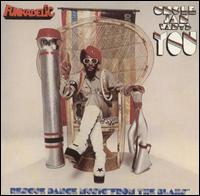
Uncle Jam Wants You is a concept album by American funk rock band Funkadelic. It was released by Warner Bros. Records in 1979, and was later reissued on CD by Priority Records. It was produced by George Clinton under the alias Dr. Funkenstein. It is the first Funkadelic album since America Eats Its Young in 1972 not to sport a cover illustrated by Funkadelic artist Pedro Bell, though Bell did provide artwork for the album’s back cover and interior. Uncle Jam Wants You was the second Funkadelic album to be certified gold. The album peaked at No. 18 on the Billboard 200 and No. 2 on the Billboard Top R&B/Hip-Hop Albums chart.

Gipsy Kings are a musical group founded in 1978 in Arles and Montpellier, France. The band, whose members have Catalan heritage, play a blend of Catalan rumba, flamenco, salsa, and pop. They perform mostly in Catalan but also mix in Spanish with languages of southern France, such as Occitan.
Northwest Iberian folk music is a traditional highly distinctive folk style, located along Spain's north-west Atlantic coast, mostly Galicia and Asturias, that has some similarities with the neighbouring area of Cantabria. The music is characterized by the use of bagpipes.

A cajón is a box-shaped percussion instrument originally from Peru, played by slapping the front or rear faces with the hands, fingers, or sometimes implements such as brushes, mallets, or sticks. Cajones are primarily played in Afro-Peruvian music, but have made their way into flamenco as well. The term cajón is also applied to other box drums used in Latin American music, such as the Cuban cajón de rumba and the Mexican cajón de tapeo.
Oscar Lopez is a Chilean-Canadian guitarist, whose signature style blends Latin and jazz styles.
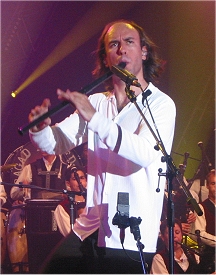
Carlos Núñez Muñoz is a Spanish musician and multi-instrumentalist who plays the gaita, the traditional Galician bagpipe, Galician flute, ocarina, Irish flute, whistle and low whistle.

Flirtin' with Disaster is the second studio album by American rock band Molly Hatchet, released in 1979 by Epic Records. The album was re-issued in 2001 with four bonus tracks. It is their best-selling album.
Al-Andalus Ensemble is a husband and wife musical duo that performed contemporary Andalusian music. The ensemble featured Tarik Banzi playing oud, ney and darbuka, and Julia Banzi on flamenco guitar.
Radio Tarifa was a Spanish World music ensemble, combining Flamenco, Arab-Andalusian music, Arabic music, Moorish music and other musical influences of the Mediterranean, the Middle Ages and the Caribbean. The name of the ensemble comes from an imaginary radio station in Tarifa, a small town in the Spanish province of Cadiz, Andalusia, the closest part of Spain to Morocco. Instead of simply fusing musical styles as they are currently known, Radio Tarifa went back in time to the common past of those styles, before the final conquest of Granada in 1492, when the Moors and Jews were exiled from Spain. This invented style sheds light upon the real styles of Spain, most notably flamenco, although the band rejected all musical purism, preferring to mix arrangements of traditional compositions with their own melodies and combining instruments from Ancient Egypt, classical Greek and Roman times with modern saxophones and electric bass.
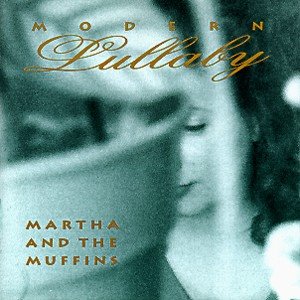
Modern Lullaby is an album by the Canadian band Martha and the Muffins, released in 1992. Although released under the band's original name, only Martha Johnson and Mark Gane remained following the original band's breakup.
Juan Cristóbal Martín is a Spanish flamenco guitarist and an author of flamenco guitar method books.

Strunz & Farah is a guitar duo with an eclectic sound that has been described as a cross between world fusion and flamenco.
Luis Villegas is an American guitarist who released an album called Cafe Olé in 1996, which was nominated for the Best New Album award at the 41st Annual Grammy Awards in 1999. Villegas's style combines new-age music, flamenco, and jazz. He is known for using a technique of playing fast, intricate lines by using the fingernail of his right index finger in place of a guitar pick. He also had a small role as a member of a band in the film Collateral starring Tom Cruise and Jamie Foxx. He is currently a member of the group Heavy Mellow, along with founder Benjamin Woods and percussionist Mike Bennett.
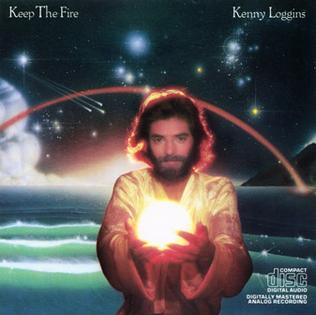
Keep the Fire is the third studio album by American singer-songwriter Kenny Loggins, released in 1979. It is perhaps best known for the hit single "This is It". The song was co-written by Michael McDonald, who also performed on the track. Michael Jackson sings backup vocals on the track "Who's Right, Who's Wrong".

Swans Are Dead is the fifth double and seventh overall live album by American experimental rock band Swans. It was released in 1998 and was recorded in 1995 and 1997 on the band's final tours, before reuniting in 2010.
Songhai was a world music collaboration between the Spanish flamenco group Ketama, Malian kora player Toumani Diabaté, and English bass player Danny Thompson. They released two albums, Songhai (1988) and Songhai 2 (1994), both co-produced by Joe Boyd.
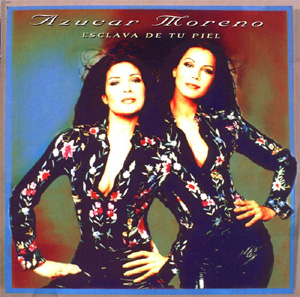
Esclava De Tu Piel is the eighth studio album by Spanish duo Azúcar Moreno, released on Sony International in 1996. The album includes the duo's biggest hit single to date, "Solo Se Vive Una Vez".

Amir John Haddad is a German-Spanish flamenco guitarist and multi-instrumentalist, based in Spain since 1997. He was the official oud, bouzouki and guitar player for Radio Tarifa for almost ten years and in that role received a nomination for Best Folk Album at the Latin Grammy Awards of 2004.
Ayre is the twelfth album by composer Osvaldo Golijov, it is a cycle of songs commissioned by Carnegie Hall for soprano Dawn Upshaw, which offers a tour of the Mediterranean, particularly in that mixture of Spanish, Jewish and Arabic influences that once coexisted quietly in Spain before the Reconquista.












